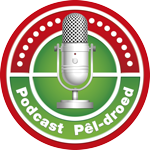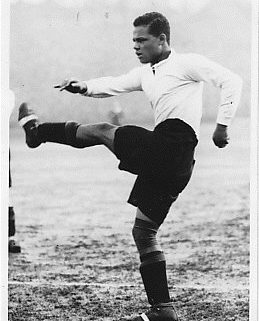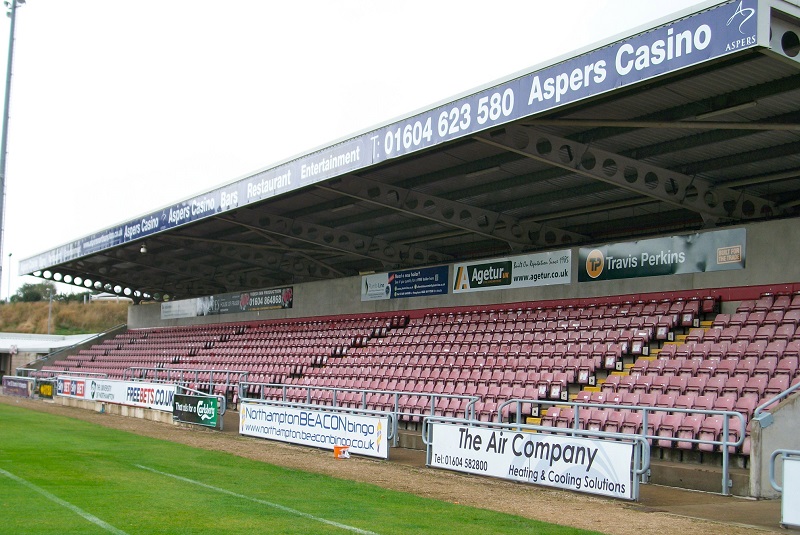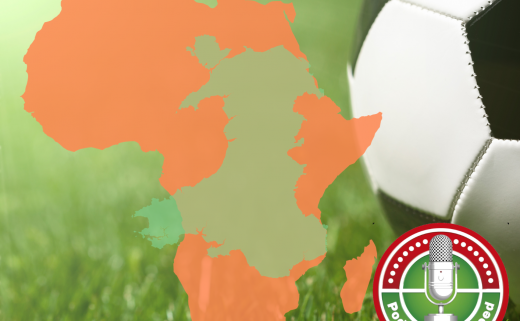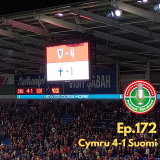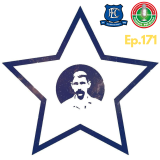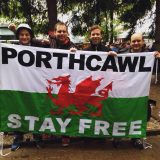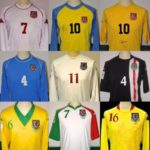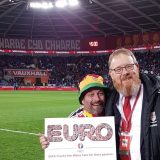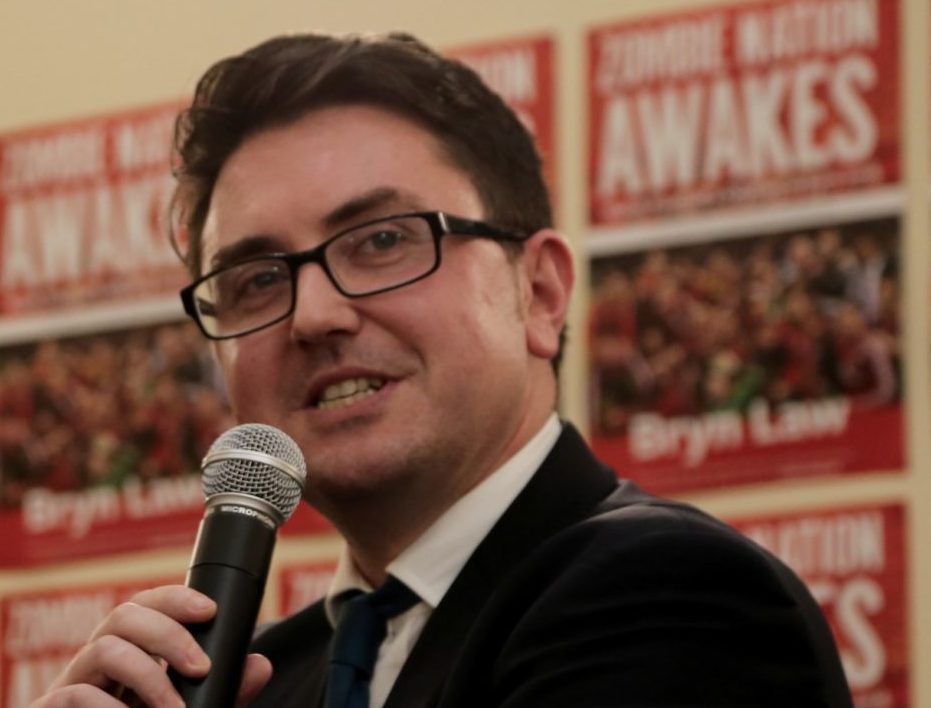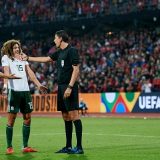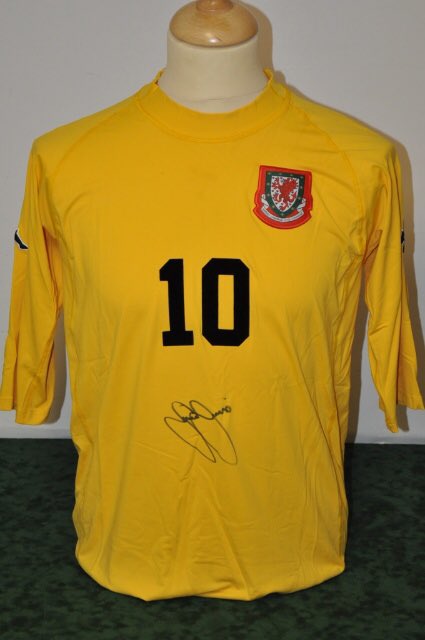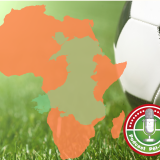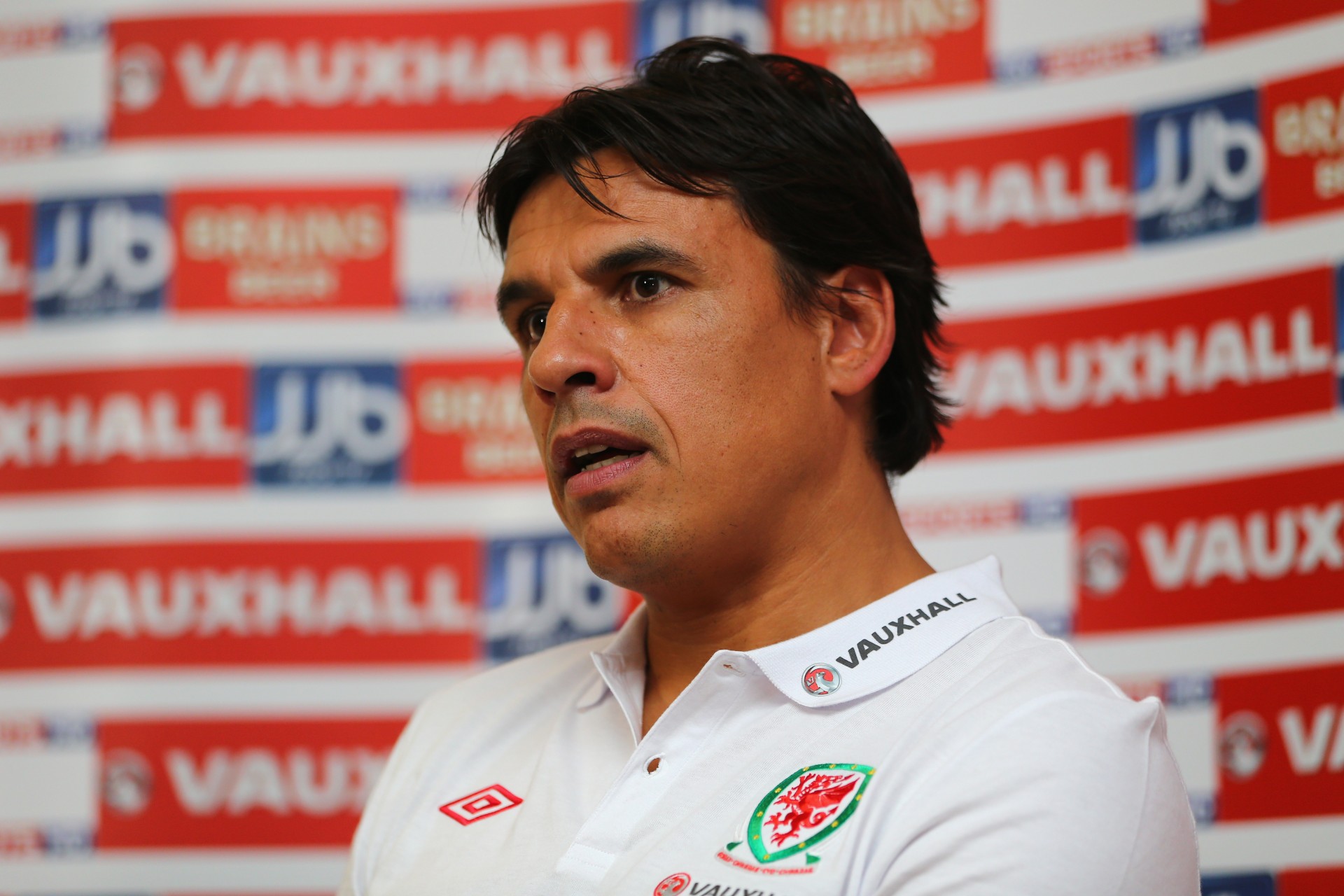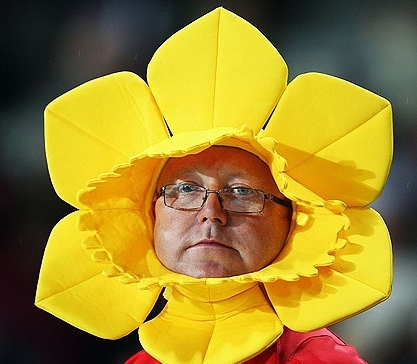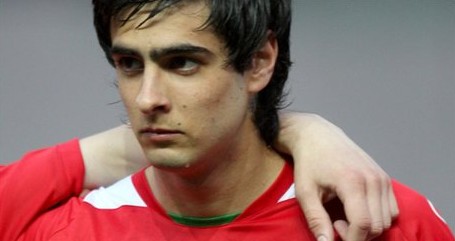Five years and counting….
Five years ago last month Wales played an end of season friendly against The Netherlands at the Amsterdam Arena. It was The Netherlands’ third pre-World Cup 2014 warm up game after playing Ecuador and Ghana and proved to be little more than a gentle runout against a Wales team missing Aaron Ramsey, Gareth Bale and, for once, Ashley Williams.
Wales had long become used to being World Cup warm up fodder: for Canada in 1986, Costa Rica in 1990, Tunisia in 1998, Germany in 2002, Trinidad and Tobago in 2006. Those countries’ fans are packing their sandals, sunscreen and vuvuzelas; ours are looking at the TV schedules.
With an honourable exception, of course, to the Wrecsam fans who went to Germany in 2006 to cheer on their adopted Trinidadians and Tobagans.
The Dutch game is of little note in the Welsh annals, other than it marked Danny Gabbidon’s 49th and final cap, and he turned the clock back with a vintage performance to help nurse James Chester through his first cap. George Williams and Paul Dummett also won their maiden caps as late substitutes. Joe Allen wore the captain’s armband for the only time to date
Even Jermaine Easter featured.
The game is probably more popularly remembered for circumstances around the squad selection which, uniquely, omitted an ‘injured’ Chris Gunter, who, upon finding out while appearing on the BBC Wales midweek sport show, phoned Chris Coleman to very much assure him that he was fit and would be joining up with the squad.
But for a small number of Wales fans the game marks a very significant milestone.
It was the match we were intending to dissect for the inaugural Podcast Pêl-droed episode. 83 episodes later we’re still going and remain at the vanguard of a Welsh community media scene that comprises a vibrant podcast scene with podcasts in both of our nation’s languages looking at Welsh politics, sustainability issues, sport and history such as Desolation Radio, Podpeth, Golau, Seismic Wales.
Cast your mind back to 2013-14. There were a few of us over at the Apostle message board. We’d generally vent our spleens, exorcise 50 plus years of non-qualifying pain and wish Jason Brown or Lewis Price would show some ambition and seek out first team football.
Apple’s iTunes had been the go-to platform for podcasts in no small part because of its iPods and iPhones as an easy, integrated way of accessing podcast content. But after an initial explosion and growth in the late noughties, podcast production and consumption began to plateau as the innovation of new technologies were imitated and large media companies colonised early organic and ‘underground’ efforts.
For instance, BBC Cymru Wales was putting podcasts out but these were basically excerpts of broadcast shows knitted together. It had embraced the medium but as one ex-BBC Wales journalist once told me it was “making podcasts without really knowing why”.
The podcast scene came to be re-invigorated when new apps and platforms offered podcasters greater control and autonomy over how their content was shared and accessed, and in turn began to challenge iTunes’ hegemony. Continued innovation in smartphone technology aided and abetted this new growth. The number of podcasts has exploded to such an extent that these days Rajar now monitors listening behaviour and figures related to podcasts as well as its traditional radio figures.
I was podcast-curious but while navigating the diverse content available I would encounter some which were interesting but unlistenable due to poor audio quality. Others had a point to make but may well still sitting be there striving to make it.
In relation to the Wales football team, I couldn’t find any podcasts at all outside of the BBC’s portmanteaux, and since I would invariably tune-in to listen to its scheduled sports programmes there was little point in re-listening to this content. This is not to say that the BBC Cymru Wales – and S4C – coverage of the national team is poor; it isn’t, and is often excellent. But I wanted to hear the non-professional media view.
More than that I wanted the obsessive’s views.
I wanted to hear about Pat Van Den Hauwe, Glyn Garner, bribing 1990s Moldovan border officials and the choice of trim on Kappa kits.
I wanted to know why we played two internationals a fortnight apart against Kuwait in 1977.
I wanted to rage about Joe Jordan and Yegor Titov.
I wanted to know why so many of our goalkeepers come from north Wales or west of the Lwchwr river.
I wanted to tell people who did not think that our 1970s Admiral ‘tramline’ kit is the greatest football kit of all time that they were wrong.
I realised I wanted to start a podcast.
Except I didn’t have the faintest idea where to start. Or with whom. Or how much it would cost. Or how I would get people to listen. And so on….
So I spent some time scouring online for experiences and wisdom of other podcasters. I picked up a Blue Yeti mic off eBay for about £70. Wondered if I could make any money via a podcast. And very quickly realised probably not.
I downloaded and played around with Audacity and learned it was actually quite easy to capture and edit audio to a basic level. But I still didn’t really know how I would get it off my laptop into people’s ears via iTunes.
A few weeks later, above the 33 Windsor Place bar in Cardiff with a group of tech-curious folk working in the third sector, Geek Speak Caerdydd, comedian Daniel Glyn told me “Podcasts are a piece of piss” and then-colleague and long-time supporter of the podcast, Dyfrig Williams, said he’d listen.
I’d already recruited my first listener!
Emboldened by this – and a couple of pints of Brains SA – I publicly committed to doing it. No backing down now.
But no-one wants to listen to a solo monologue about football. Besides, if it was just me what would stop each episode from descending into a plaintive ode to the unfulfilled talent of Jason Koumas?
At this point I made probably my most inspired decision: a podcast about our national team must draw on the different allegiances, communities, geographies and perspectives of our nation. Maybe even its languages too.
I ran the idea of a podcast past a couple of the Apostle moderators. I figured if they were committed enough to take on the role of moderating a message board about Wales then a podcast might be something they’d be prepared to semi-commit to being part of.
Enter Leon. A Wrecsam fan with a very obvious esteem for Brian Flynn, that would eventually become a literary concern. One complication: he lived in Innsbrück so we’d need Skype for Leon’s contributions; an additional technical complexity, no doubt way beyond my nascent skillset.
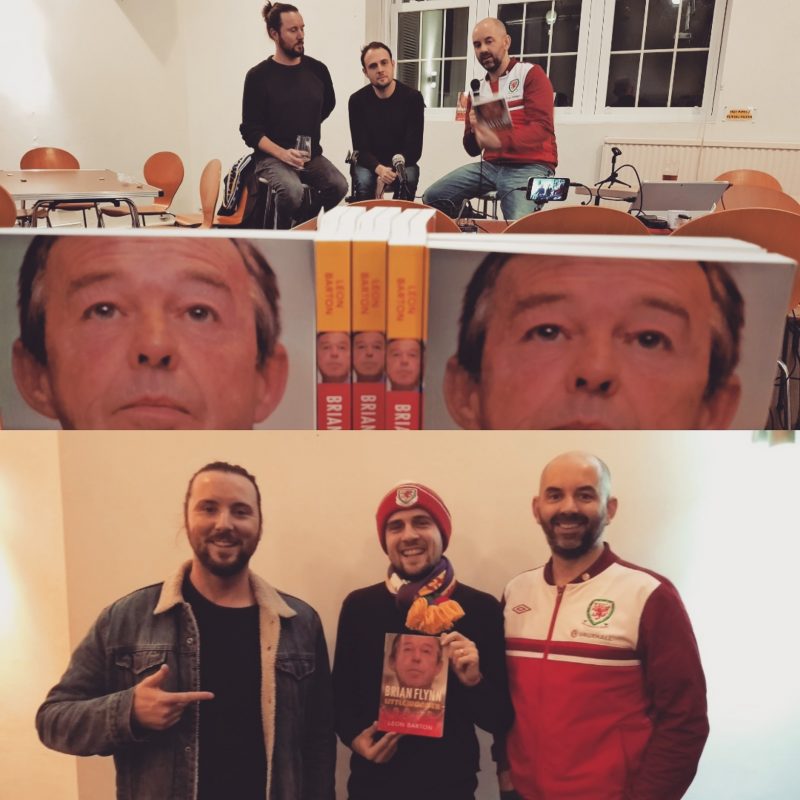
Enter Rich. Residing in Cardiff, but hailing from Porthaethwy and not short of an opinion or five and with the creative turn of phrase becoming of a published author.
So we convened above 33 Windsor Place and recorded our debut episode dissecting that 2014 Netherlands friendly and looking ahead to the imminent World Cup and in particular the potential impact on it by two teams that Wales had drawn for qualifying for the 2016 European Championships: Bosnia Herzogovina and everybody’s tournament dark horses Belgium. So although the Wales team would be putting its feet up over the summer we at least had some Wales-related content to discuss.
I struggled to think of a witty pun for the name for the podcast so adopted what I thought would be a temporary, alliterative name that at least expressed our Welsh identity: Podcast Pêl-droed. A better name failed to materialise and so it stuck.
Before long my 5 aside teammate Gareth, a Cardiff City season ticket holder and long-time suffering Wales fan from Barry brought us up to quartet. My brother Dan then invited himself to a recording one night and never left.
This began to make it a bit top heavy with Cardiffian accents and perspectives though. Easy for convening for recordings but did it parochialise things a bit? Crucially we lacked a Jack perspective.
Enter Hywel, a teaching colleague of Gareth’s originally from Llanelli and a Swans fan. I met him for the first time watching the almost-disastrous Andorra away match that commenced the qualifiers. Turned out he lived in the street behind me.
And that’s us, our ‘collective’. Having got one episode under our belt the goal was to then record a second and a third so on. Naturally we preview and review matches, but over the course of our 80 episodes we have discussed all sorts of topics related to the national team that consider aspects of heritage, culture, society and identity.
Most recently we chatted with Dan Evans about his suggestion that The Red Wall – the name coined by the players for the fans – are ambassadors for an independent travelling statelet in which the Welsh language is normalised and uncontested and in which working class people self-organise and express their identity in a way which is increasingly diminishing at home. We barely mention the actual matches.
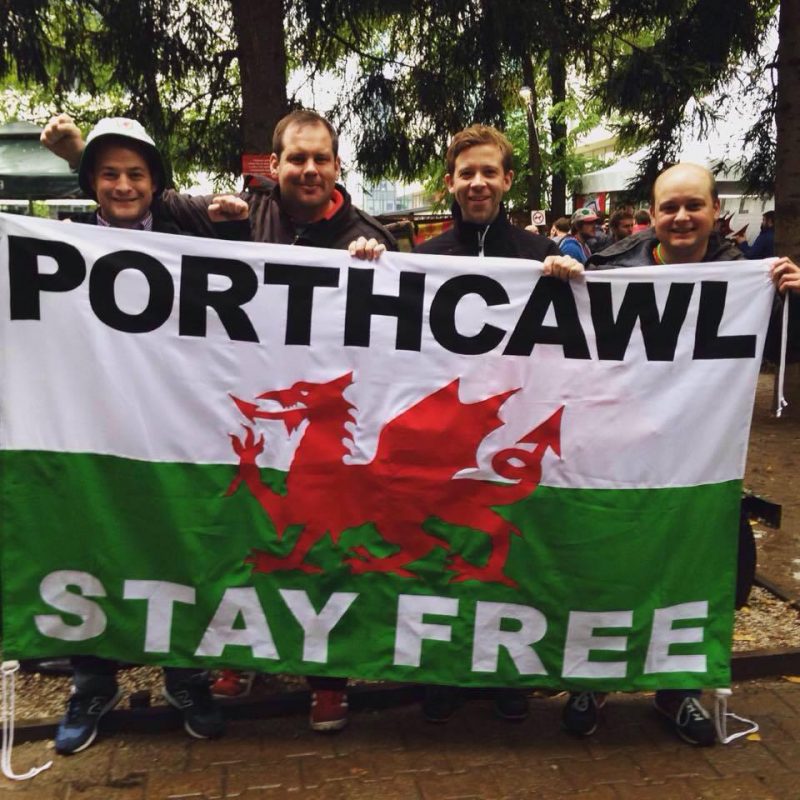
Rarely has our collective all been present for a recording; work, children, life often get in the way for what is an entirely voluntary endeavour. So guests like Dan often join us. Huw Davies has joined us a few times. James and Hywel from The Barry Horns were early contributors.
Mark Ainsbury joined me to trawl through almost 30 years of his galivanting around the world watching #walesaway.
Simon Shakeshaft has joined us several times and contributed blogs sharing with us his passion and astonishing depth of knowledge about Wales kits.
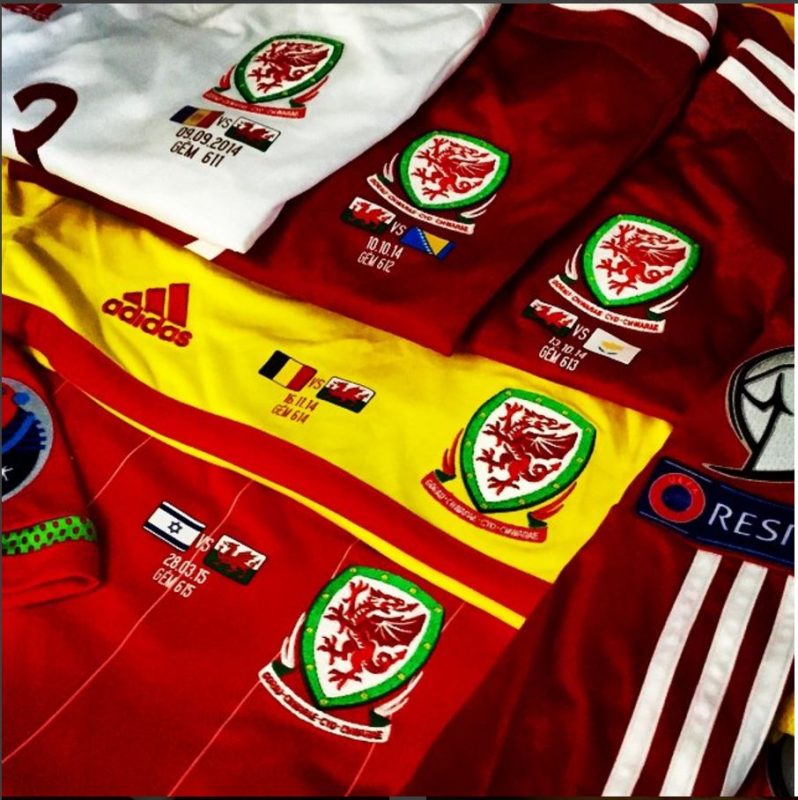
Early episodes visited the Welsh Football Collection at Wrecsam Museum and met with the Wrecsam Plaid Cymru politicians behind the #BringFootballHome campaign for a National Football Museum to be established, ideally in the town.
Tim Hartley joined us to tell us about the origins and work of the Gôl Cymru charity that raises money and purchases important equipment and resources for worthy causes that support disadvantaged children in those countries that Wales visit. We have discussed fan identities within The Red Wall, for example what is it like to be a Merthyr Town fan following Wales. We have helped Show Racism The Red Card promote its campaigning and educational work.
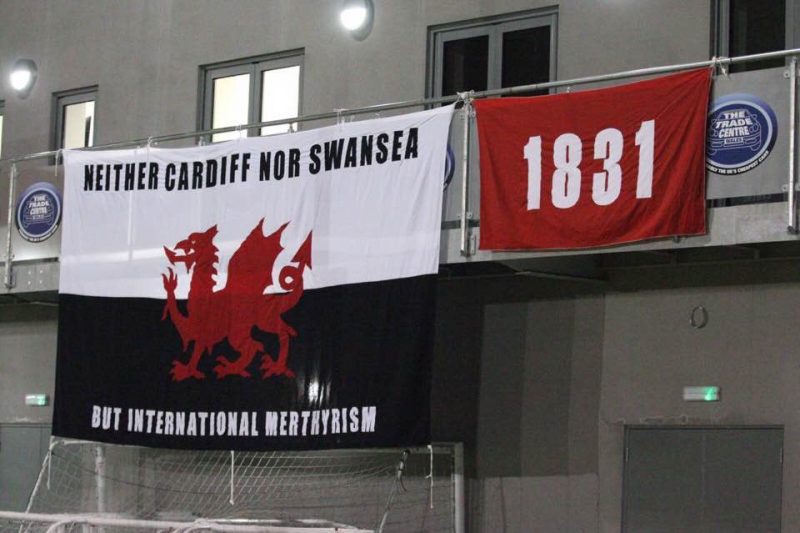
Euro 2016 was more than just a sporting tournament. It has invigorated the national movement, by providing a touchstone for some people traditionally unmoved and unmotivated by politics to contribute to a re-imagining of what our little country can achieve. We chatted with documentary filmmaker Nick Stradling about his film Y Wal Goch shot at Wales’s opening game at Euro 2016 and which captured this in its nascence.
The Euros “put Wales on the map” say so many (tipsy) fans in it. There is a more important map however, one which is being presently drawn that charts a path towards greater self-determination, national cohesion and prosperity. The Red Wall is emerging as a key contributor to this. In a small way I like to think Podcast Pêl-droed is serving to document this and give it voice.
But sometimes we just like to indulge ourselves and pick an XI of one-cap wonders.
We have not been doing this in isolation though. The Barry Horns helped re-invigorate the atmosphere in the ground, Spirit of 58 clothing continues to innovate and provide, as Dan Evans points out, a national dress for our independent traveling statelet, with feWales serving female members of The Red Wall.
Other podcasts have cropped up and the printed media scene remains stubbornly lively with new publications emerging recently; though I still miss The Dragon Has Landed. On the whole the professional media has welcomed this new ecosystem of fan-led media. It might try on occasions to colonise, patronise – even plagiarise – the indie media but I think it recognises that we essentially complement what it does.
We do not wish to compete with or displace what it does. But we see it as part of the role of Podcast Pêl-droed to challenge and question what professional media says about the national team; dare I say hold it to account. Welsh civil society is healthier for it.
Another inspired decision was to run a blog in parallel with the podcasts and this allows us to fill the gaps in matches and episodes with content; offer a platform for the views and perspectives on the national team of other fans; and maintain our search engine optimisation. I’m not 100% sure what SEO is or does but it comes with the territory, along with maintaining the podcast’s website and iTunes connection. On all this we are hugely indebted to our ‘fifth Beatle’ Wyn James of Pedryn who has helped since day one on the technical side of things. Without Wyn we genuinely would not be here. So blame him.
What next for us? The 100 episode milestone is looming. I always assumed Chris Gunter would get to his century before we reached ours but he has become increasingly marginal under Ryan Giggs so we might pip him. It would be nice to get there. I have long wanted more Welsh language content on the podcast and we need to involve more women and ethnic minorities too for it be more representative of The Red Wall.
But to paraphase that old sporting cliché we will just keep taking it one episode at a time.
